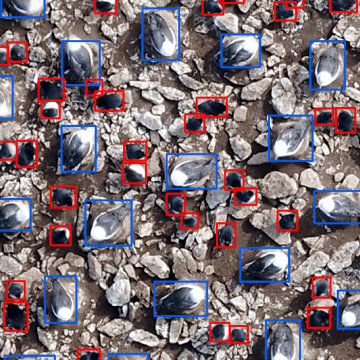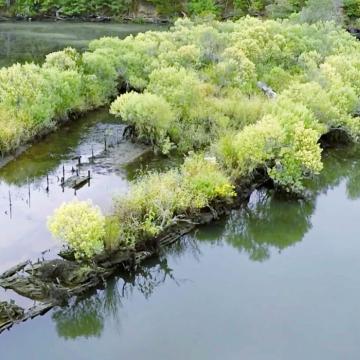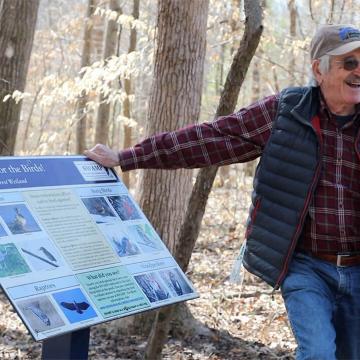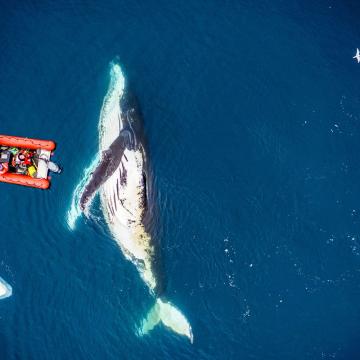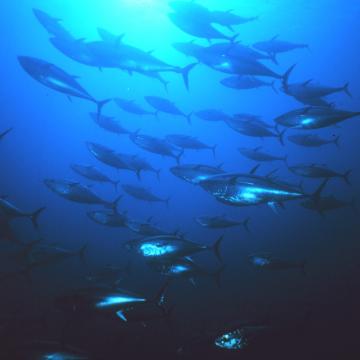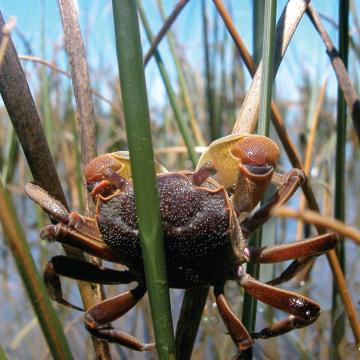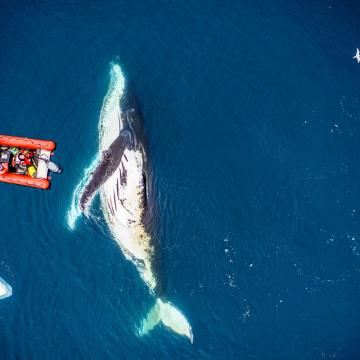-
NewsUsing drones and artificial intelligence to monitor large colonies of seabirds can be as effective as traditional on-the-ground methods while reducing costs, labor and the risk of human error, a new study finds.
-
NewsJoel Dunn (MEM’04) Helps Create America’s First National Marine Sanctuary in 20 Years
-
NewsRecent Duke grad Alexandra DiGiacomo (BS ’20) is using drones to better understand how rising seas, warming waters and rapid development are killing protective saltmarshes at our coast, and what can be done to reverse the losses.
-
NewsSixteen years after the restoration of Upper Sandy Creek began, hundreds of species, some rare, now call the once-heavily eroded and degraded stream home, and nitrogen pollution flowing off Duke’s campus into downstream waters has been slashed by 75%.
-
NewsThe WildTrack Specialist Group, a global network of biologists and conservationists dedicated to using only non-invasive techniques to monitor and protect endangered species, will be launched April 22 to celebrate Earth Day.
-
NewsWhen it comes to storing carbon during prolonged periods of drought and heat, wooded peatlands at low-latitudes have a three- to five-fold advantage over other peatlands. An ancient class of slow-growing fungi is the reason why.
-
NewsOcean mammals are at a crossroads, with some species at risk of extinction and others showing signs of recovery, a new study by an international team of researchers shows.
-
NewsInteractive software that “reads” and analyzes footprints left by black rhinoceroses can be used to monitor the movements of the animals in the wild, giving conservationists a new way to keep watch on the endangered species and help keep it safe from poachers, according to a Duke University-led study.
-
NewsSalt marshes, seagrass meadows and other coastal ecosystems are in rapid decline around the world. Restoring them is expensive and often unsuccessful. But an international team of researchers has discovered a way to sharply increase the odds of success by using biodegradable mats.
-
NewsScientists at Duke University are harnessing the power of big data and geospatial analysis to create new ways to track the effects of climate change on species and food webs.
-
NewsHigh-intensity fires can destroy peat bogs and cause them to emit huge amounts of their stored carbon into the atmosphere as greenhouse gases, but a new Duke University study finds low-severity fires spark the opposite outcome.
-
NewsThe Migratory Connectivity in the Ocean (MiCO) system, an online open-access global database that maps the movements of sea turtles, whales, sea birds and other migratory species through the open ocean, has been awarded the 2020 Innovation Award by the Ocean Awards program.
-
NewsThe Duke University Wetland Center is marking its 30th anniversary this year by kicking off the largest expansion of research, teaching and outreach programs in its history.
-
NewsA Duke Ph.D. candidate in marine science and conservation uses drones to measure whales and other marine mammals.
-
NewsInhaling dust that contains fly ash particles from coal combustion has been linked to lung and heart disease, cancer, nervous system disorders and other ill effects. But tracking the presence of coal ash in dust has been a challenge for scientists.
